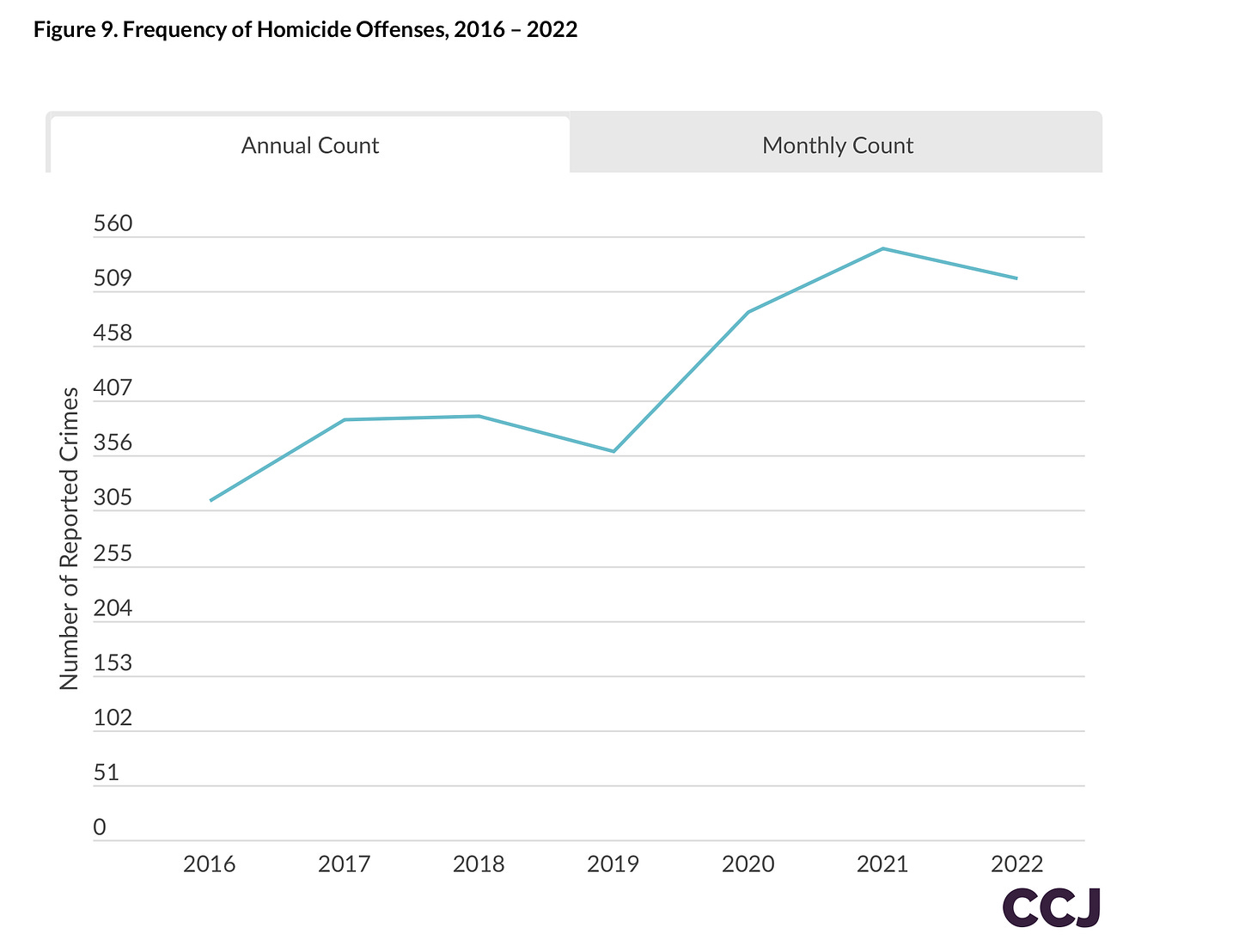RePath Round Up--Speech Code for Justice
Plus, cocaine sharks, panda dogs, and a kidney for Micky Mouse
Bad Words/Good Words: The Community Supervision Resource Center (CSRC), which is managed by the Center for Effective Public Policy in partnership with the American Probation and Parole Association, the Association of Paroling Authorities International, the Center for Justice Innovation, and the National Association of Pretrial Services Agencies and funded by the Bureau of Justice Assistance (a component of the Department of Justice’s Office of Justice Programs) has issued a language guide which is specifically funded by a federal grant under Department of Justice’s Office of Justice Programs, which also includes the Bureau of Justice Statistics, the National Institute of Justice, the Office of Juvenile Justice and Delinquency Prevention, the Office for Victims of Crime, and the SMART Office.
In short, a complex web of government agencies and NGOs have issued a kind of speech code for community supervision funded by tax dollars. The stated goal of the language guide is to displace traditional terms that imply punitiveness with “person first” language, that avoids “labels or adjectives.”
“If there is any fixed star in our constitutional constellation, it is that no official, high or petty, can prescribe what shall be orthodox in politics, nationalism, religion, or other matters of opinion or force citizens to confess by word or act their faith therein.”
—Justice Robert H. Jackson
The language guide provides a list of terms to be avoided along with preferred terminology to be used instead. See if you can determine which of the following terms are properly used or should be avoided:
elderly or senior citizens
individual or person(s)
normal or LGBT
poor or at risk neighborhoods
vulnerable or marginalized groups
poverty stricken or poor people
addict, drug user, junkie, or user
alcoholic, drunk, or alcohol dependency
drug abuse or substance abuse
medication-assisted treatment or opioid substitution replacement therapy
mental health defect, deficit, problem or disorder
recovering, former, or reformed addict
rehab center or detox center
successful suicide or comitted suicide
ex-inmate, ex-con, or ex-offender
female inmate, female offender, female population, or women offenders
inmate, prisoner, or detainee
alternatives to detention or alternatives to incarceration
drug testing or urinalysis
enforce, detect, or monitor
sanction or punishment
risk, high risk, medium risk, low risk
crime free or offense free
The answer is that each and every one of these terms are to be avoided and none are approved by the language guide. Instead, the guide suggests alternative terms like: communities experiencing chronic disinvestment, people experiencing poverty, person who misuses alcohol/engages in unhealthy/hazardous alcohol use, person who was system-involved, returning citizen, justice-involved woman, enhance intrinsic motivation, creating prosocial relationships, needs appropriate for interventions, and conviction-free rate.
At every stage, the guide favors imprecision, wordiness, and jargon over direct language. Maybe this improves outcomes and properly “centers” the people on supervision as intended. Or maybe, it reveals a gap between that which is meant and that which is said.
“The great enemy of clear language is insincerity. When there is a gap between one's real and one's declared aims, one turns, as it were, instinctively to long words and exhausted idioms, like a cuttlefish squirting out ink.”
—George Orwell
Solvables: Despite all the resources, technology, and surveillance available, the CSG Justice Center reports law enforcement solves less than 40% of violent crimes reported to the police across the US. In 2022 (the latest full year with available data), only about 1/2 of homicides were solved while more than 1/2 of aggravated assaults, robberies, and rapes were unsolved.
Florida led all states with an unsolved rate near 80% for all violent crimes while Vermont’s unsolved rate was under 30%.
Happy Birthday—the SAFE-T Act: One year after Illinois eliminated cash bail across the entire state, it appears that the actual impact may be a little slight. While jail populations did go down a bit (nowhere near as much as some people predicted), the rate at which people were released from jail hasn’t changed dramatically according to the Center for Criminal Justice at Loyola University. The Center also reports that time spent on pre-trial hearings has quadrupled, but crime rates and failures to appear do not seem to have increased.
Juvenile Justice: The Council on Criminal Justice has released a new report detailing nationwide trends in juvenile justice from 2016 through 2022. The report reveals:
Offending among juveniles aged 15 to 17 was roughly 23% lower in 2022 than in 2016; offending among juveniles aged 10 to 14, however, was nearly 9% higher over the same period.
Homicides perpetrated by juveniles jumped 65% from 2016 to 2022, while burglary (-62%), larceny (-46%), and robbery (-45%) experienced the steepest declines.
Firearm involvement in juvenile offending was 21% higher in 2022 than in 2016.
The number of offenses committed by juvenile males was 21% lower in 2022 than in 2016. There was no notable change in the offending frequency among juvenile females over the same period.
Stranger Stuff
Coming Soon to Netflix: The Letcher County, Kentucky sheriff is in custody in connection with the shooting of a county judge at the courthouse.
Kid/No Kid: In Georgia, a 14 year old is charged with murder after a school shooting. Prosecutors have charged him as an adult. Then prosecutors argued that he is just a kid and charged his father with murder for not stopping him.
The Big C: Four Albany officers sustained head injuries when two cruisers collided while responding to two other officers who were exposed to cocaine.
More Big C: Brazilian sharpnose sharks have tested positive for cocaine off the coast of Rio de Janeiro.
Chow Chow and Ling Ling: A Chinese zoo was forced to admit that it had painted two chow chows to look like panda bears after one of them started panting and barking. The zoo initially claimed they were a unique breed known as “panda dogs.”
Reducing Homicides: How has San Francisco been able to drastically reduce homicide rates? Maybe because young men can’t afford to live there.
Oh, Mickey: A Disney obsessed couple has lost their lawsuit to be readmitted to the exclusive Disney 33 club at the Anaheim theme park. The couple was spending about $125,000 at the park annually before their membership was revoked for public drunkeness. The couple has spent years and hundreds of thousands of dollars seeking to re-admitted. Now that they have lost their lawsuit and set back their retirement for five years, they are in no mood to give up the fight—”I’ll sell a kidney, I don’t care.”





